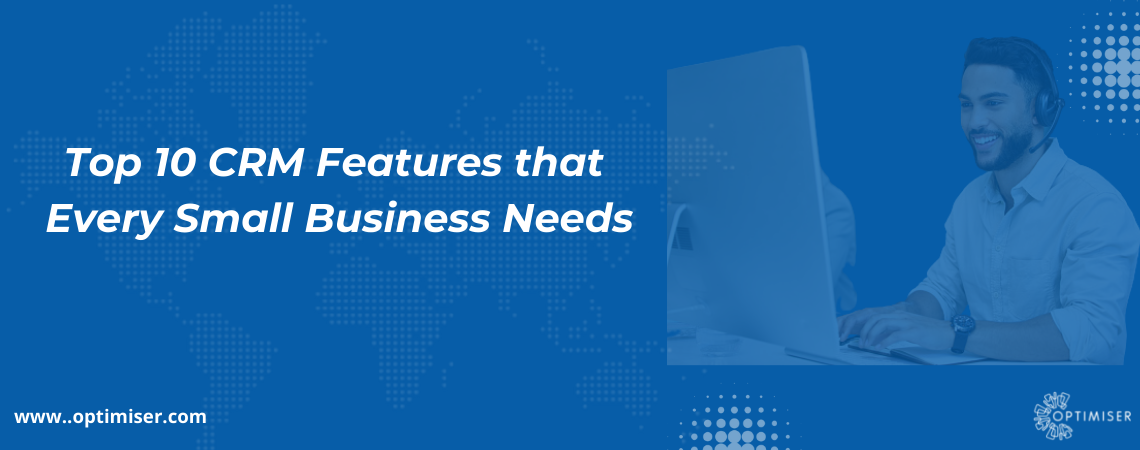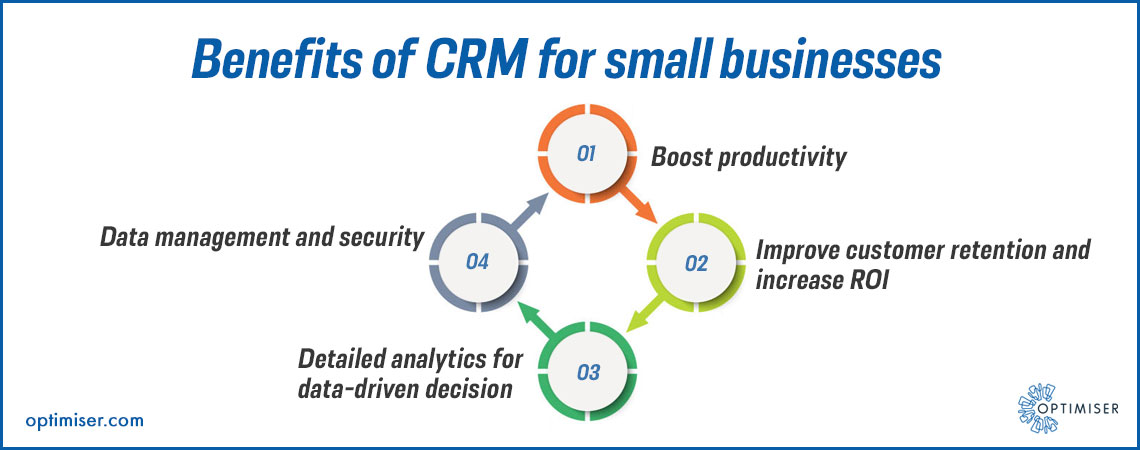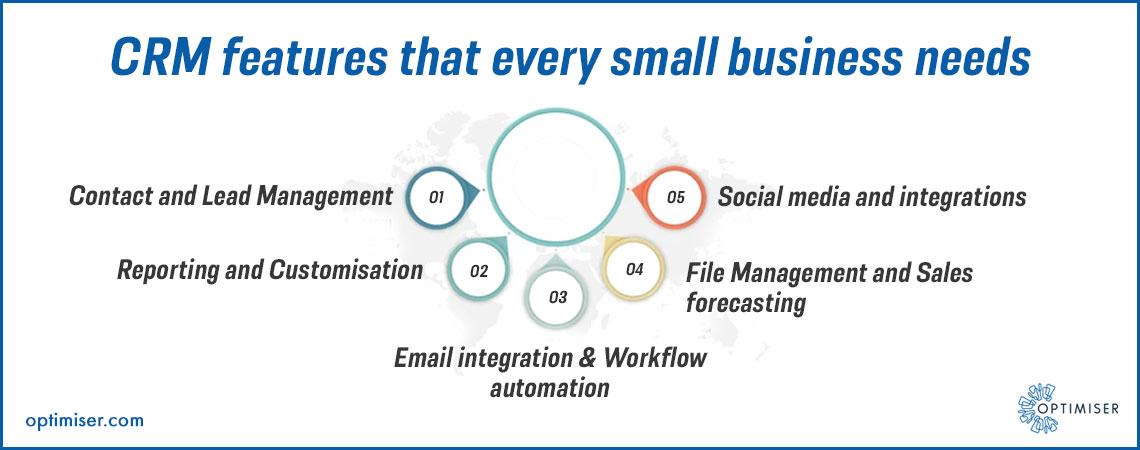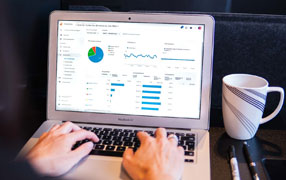
Top 10 CRM Features Every Small Business Need
Having a centralised system to accomplish complex tasks is incredibly important. Take a look into the top 10 CRM features that every small business needs.

1. Contact Management
CRM's foremost feature is to preserve all the data from the leads and clients in a centralised system. One of the critical records about the lead is their contact information.
Contact management includes storing a customer's contact records together with names, contact numbers, addresses, and social media account hyperlinks in a swift searchable and easy to retrieve manner. This data that is available in hand will be useful when you want to reach your leads, any time and from anywhere.
2. Lead Management
Lead Management is one of the vital functions that one should expect from CRM software. It converts all of your leads from one storage system to transform them into paying customers. Leads are those who've expressed a few levels of interest in your product however have now not been certified to determine if they suit the ideal customer persona. Your CRM will aid you in tracking and managing these leads and transforming them into paying customers.
CRM software assists in collecting data on leads from various channels, including phone calls, forms on the web, social media channels, and emails. The lead control function ensures that no data is lost and that leads are scored and qualified as accurately as possible. It also tracks the movement of clients and leads through the sales pipeline and facilitates the decision on marketing strategies to nurture them. Lead Management helps improve the performance and productivity of the sales teams by focusing on prospects who are most likely to convert.
3. Email Integration
Email is one of the most powerful tools for communication for B2B conversations. Integration with Outlook and Gmail, emails are useful for internal collaboration under a centralised data system.
Email control offers the ability to ship multiple emails, set strategies for email campaigns for marketing purposes, track email conversions, send automated emails on occasions such as festivals, birthdays etc. By integrating with the calendar, you will never miss a deadline.
4. File Management
Documents stored within one platform makes it easier to share them with colleagues and clients without delay. The file management function lets you create, collect, store, access, and share the attachments from the CRM system. To make it more manageable and secure, photos, images, PDFs, spreadsheets are easy to attach and store to improve productivity. For security, you can set file access and editing rights from the CRM platform. One good example of an affordable CRM for small businesses is Optimiser. It comes with a file management function and Drives storage to store important files without worrying about losing them. They will be backed up automatically as well.
5. Workflow Automation
CRMs can promote productivity by automating repetitive tasks, including following up with leads and raising invoices. Sending automated emails based on customer triggers are also a part of workflow automation software. Once this has been accomplished, you will receive notifications of the same, and reminders will be sent consistently if the data within the system has been updated. Sales reps will be far more efficient if they do not have to spend their time finishing administrative tasks.
6. Reporting
Reporting is a key feature of CRM software programs. It is significant for every organisation as the Customer Relationship Management software helps with sales, marketing, customer service, e-commerce etc. Routine summary reports give an insight into the overall performance of your business. It helps employees perform their day-to-day tasks better and make more data-driven decisions that will positively impact the business.
It tracks performance metrics and data such as profitability. Rate of customer retention and campaign effectiveness. Dashboards provide a full view of the operations in a smaller, comprehensive manner, complete with charts and graphs.
7. Sales forecasting
Forecasting in CRM predicts your future sales figures based on the data within your sales pipeline from present and past records trends. Forecasting allows you to set objectives for your business for the next sales cycle. Making smarter and driven decisions using forecasting, you will witness spontaneous growth in your operations that will streamline and become consistent over time. However, it is important to note that forecasting is not the be-all, end-all data. The trends change, so does consumer behaviour. While one can predict what the sales figure will be, the numbers will likely be slightly different from the predictions.

8. Customisation
Every business has its unique needs as the clients have their own specific desires. Some CRMs like Optimiser allow you to add or remove features from your subscription package. This ensures that you are paying for the tools that you are likely to use and, in turn, saving quite a lot of financial resources.
Optimiser offers Shop Suite, sales suite, marketing, event management, project management and much more. With fully customisable integration, Optimiser is one of the most flexible and easy to use Cloud CRMs.
9. Social Media
Social media can do wonders for your business for marketing and lead scoring. Anything can go viral on the internet, and given this unpredictability, companies can use it to their advantage.
10. Integrations
CRM software should be integrative and scalable as that will save you quite a lot of time and money. Some integration includes email, websites, social media and much more.
SUMMARY
CRM for small businesses must include these 10 functions to be effective and make the employees more productive. Most CRM vendors offer these basic features and should not be overlooked because they seem to be very common. Using these functions together can increase ROI as well as convert leads into paying customers.

30 days free trial. No credit card required
 One powerful platform
One powerful platform
 Simple to use
Simple to use
 Comprehensive
Comprehensive



